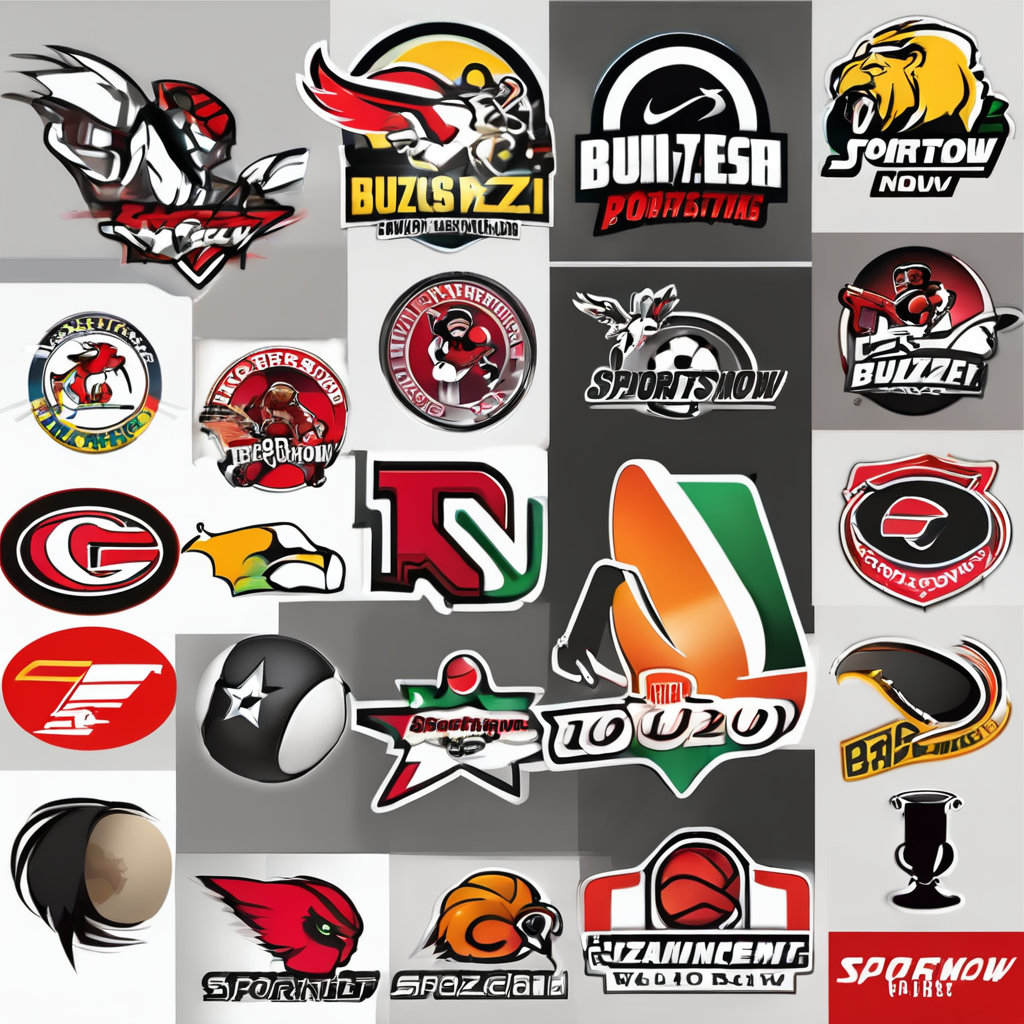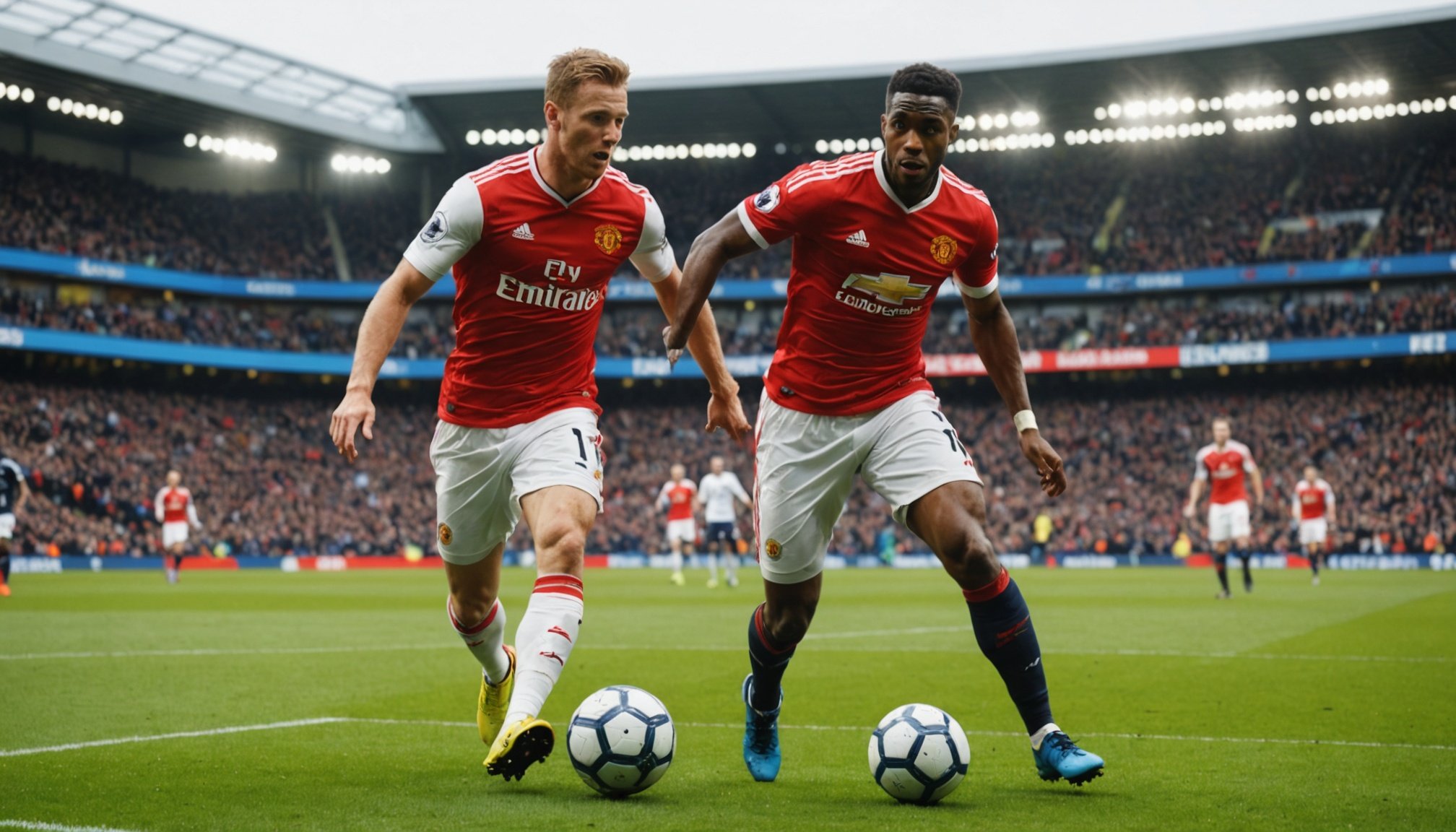Exploring the Legal Landscape: How Football Player Endorsements Impact Sports Product Marketing in the UK
The Power of Endorsements in Football
Football player endorsements have become a cornerstone of sports marketing in the UK, influencing how sports products are marketed and consumed. These endorsements not only boost the profile of the athletes involved but also significantly impact the sales and brand visibility of the associated products.
For instance, athlete endorsements can lead to an average 4% increase in sales, making their involvement in content creation highly valuable. This is evident in campaigns like Adidas’ ‘Hey Jude’ for Euro 2024, which featured Jude Bellingham and David Beckham, highlighting the brand’s commitment to nurturing young talent and celebrating football heritage.
Also read : Exploring Cutting-Edge Techniques for Injury Prevention in Professional Football
Legal Framework: Contracts and Rights
The legal landscape surrounding football player endorsements is complex and involves several key components:
Contracts and Agreements
Football players enter into various contracts that define their endorsement roles. These contracts typically include clauses related to the use of the player’s image, public appearances, and the promotion of specific products. For example, a contract might specify the number of times a player must appear in advertisements or the types of social media posts they need to make.
Topic to read : Essential Strategies for Analyzing Opponent Tactics Ahead of Key Football League Matches
Key Components of Endorsement Contracts:
- **Image Rights**: The right to use the player's image, name, and likeness for promotional purposes.
- **Public Appearances**: The number and type of public events the player must attend.
- **Product Promotion**: The specific products the player must endorse and how they will be promoted.
- **Exclusivity**: Clauses that prevent the player from endorsing competing brands.
- **Termination**: Conditions under which the contract can be terminated.
Image Rights and Copyright
Image rights are a critical aspect of these contracts. Players, or their representatives, often hold the rights to their image, which can be licensed to brands. This licensing agreement ensures that the brand has the legal right to use the player’s image in their marketing campaigns. However, disputes can arise if the terms of the image rights are not clearly defined or if there is a breach of contract.
“Image rights are a valuable asset for athletes, and they need to be managed carefully to avoid any legal disputes,” notes a sports law expert. “Clear contracts and agreements are essential to ensure all parties understand their obligations and rights.”
Sports Governing Bodies and Regulations
Sports governing bodies, such as the Premier League and the Football Association, play a significant role in regulating endorsements and ensuring compliance with various laws and regulations.
Anti-Doping and Match Fixing
Governing bodies have strict rules against anti-doping and match fixing, which can impact a player’s ability to secure endorsement deals. Any violation of these rules can lead to severe penalties, including bans from the sport, which would naturally affect their marketability.
Broadcasting Rights
Broadcasting rights are another area where governing bodies influence endorsements. The way matches are broadcast and the rights associated with these broadcasts can affect how players are marketed and endorsed. For example, players may be required to participate in pre-match and post-match interviews, which can be part of their endorsement contracts.
Dispute Resolution and Arbitration
Disputes in endorsement contracts are not uncommon, and resolving them often involves legal or arbitration processes.
Arbitration
Arbitration is a common method for resolving disputes in sports contracts, including endorsement deals. This process involves an impartial third party making a binding decision. For instance, if a player feels that a brand has not fulfilled its obligations under the contract, they might seek arbitration to resolve the issue.
Legal Disputes
Legal disputes can arise from various aspects of endorsement contracts, such as the misuse of image rights or the breach of exclusivity clauses. These disputes often end up in court, where the rights holder (the player or their representative) seeks compensation or other remedies.
“A well-drafted contract is crucial in preventing disputes, but even with the best contracts, issues can arise. Having a clear understanding of the legal framework and access to effective dispute resolution mechanisms is essential,” advises a sports lawyer.
Financial Implications and Sponsorship Deals
The financial implications of football player endorsements are significant, both for the players and the brands involved.
Sponsorship Deals
Sponsorship deals are a major source of income for football players. These deals can be lucrative, with top players earning millions from their endorsements. For example, Nike’s “Dream Crazier” campaign, which highlighted female athletes, generated $43 million in media exposure and a 31% increase in online sales within a week.
Brand Value and Loyalty
Effective endorsements can significantly enhance a brand’s value and loyalty. When athletes endorse products, they bring their own fan base and credibility to the brand. This can lead to increased sales and long-term brand loyalty.
“Luxury brands need to build lifelong loyalty, and athletes can help them do that,” says Tom Garland, founder of brand consultancy Edition+Partners. “A sports fan is typically created at the age of 12. If a luxury brand can associate itself with an athlete a fan loves at that age, they can build lifelong loyalty”.
Digital Marketing and Social Media
In today’s digital age, social media and e-commerce play a vital role in sports marketing and endorsements.
Social Media Promotions
Social media platforms are crucial for promoting endorsed products. Athletes often have millions of followers, and their posts can drive significant traffic to brand websites. For instance, platforms like Instagram and Facebook offer direct shopping features, enabling fans to purchase merchandise with just a few clicks.
E-commerce and Virtual Merchandise
The rise of e-commerce has expanded the merchandising industry, including virtual merchandise. Sports managers use digital marketing strategies to promote and sell merchandise directly to fans, creating a seamless shopping experience. Limited-edition releases and teaser campaigns can generate excitement and exclusivity, driving sales and engagement.
Branding and Merchandising Success
Effective branding is essential for the success of sports merchandising and endorsements.
Brand Identity
A strong brand identity resonates with fans and drives merchandise sales. Sports managers work to create a brand that reflects the team’s culture, history, and values. Iconic logos, team colors, and player endorsements are powerful tools in promoting products that fans will eagerly buy.
Merchandise Design and Marketing
Teams that understand their brand positioning can better design and market merchandise that aligns with fan preferences. For example, Under Armour’s “Rule Yourself” campaign, featuring Michael Phelps, highlighted the sacrifices and disciplined lives of athletes, resonating with fans and driving sales.
Football player endorsements are a pivotal part of the sports marketing landscape in the UK, influencing how sports products are marketed and consumed. Understanding the legal framework, including contracts, image rights, and dispute resolution, is crucial for both athletes and brands. The financial implications are significant, and effective branding, digital marketing, and social media strategies are essential for maximizing the impact of these endorsements.
As the sports industry continues to evolve, the intersection of sports and luxury, as seen in events like the Paris 2024 Olympics, will further redefine how endorsements are leveraged. Athletes are becoming style icons and influencers, and their involvement in the design process of luxury products is creating new avenues for brand engagement and loyalty.
In summary, the legal landscape of football player endorsements is complex but offers immense opportunities for both athletes and brands. By navigating this landscape effectively, all parties can benefit from the powerful synergy between sports and marketing.
Practical Insights and Actionable Advice
For those involved in sports marketing and endorsements, here are some practical insights and actionable advice:
- Clear Contracts: Ensure that all contracts are well-drafted and clearly define the terms of the endorsement, including image rights and public appearances.
- Understand Image Rights: Manage image rights carefully to avoid legal disputes and ensure that all parties understand their obligations and rights.
- Leverage Digital Marketing: Use social media and e-commerce platforms to promote endorsed products and create a seamless shopping experience for fans.
- Build Strong Brand Identity: Develop a brand identity that resonates with fans and reflects the team’s culture, history, and values.
- Engage with Fans: Use social media and other platforms to engage with fans, creating an emotional connection that drives loyalty and sales.
By following these guidelines, you can navigate the legal landscape of football player endorsements effectively and maximize the impact of these powerful marketing tools.
Table: Comparison of Successful Endorsement Campaigns
| Campaign | Brand | Athlete(s) | Key Features | Impact |
|---|---|---|---|---|
| Adidas ‘Hey Jude’ | Adidas | Jude Bellingham, David Beckham | Heartfelt tribute, nostalgic tone, promoting young talent and football heritage | Emotional connection with fans, increased brand loyalty |
| Nike ‘Dream Crazier’ | Nike | Female athletes | Highlighting female empowerment, overcoming social and physical barriers | $43 million in media exposure, 31% increase in online sales |
| Under Armour ‘Rule Yourself’ | Under Armour | Michael Phelps | Highlighting athletes’ sacrifices and disciplined lives | Record revenues, 22% increase in total revenues |
| Coca Cola ‘It’s Magic When We Come Together’ | Coca Cola | Various athletes | Emphasizing teamwork and community | Increased brand visibility, fan engagement |
Quotes from Experts
- “Athletes offer something unique that traditional celebrities can’t. They represent perseverance and passion, which is why they’re so valuable for luxury brands. Their authenticity resonates with a broader audience that luxury brands are trying to reach.” – Tom Garland, founder of Edition+Partners.
- “Luxury brands need to build lifelong loyalty, and athletes can help them do that. A sports fan is typically created at the age of 12. If a luxury brand can associate itself with an athlete a fan loves at that age, they can build lifelong loyalty.” – Tom Garland, founder of Edition+Partners.
- “Image rights are a valuable asset for athletes, and they need to be managed carefully to avoid any legal disputes. Clear contracts and agreements are essential to ensure all parties understand their obligations and rights.” – Sports law expert.











